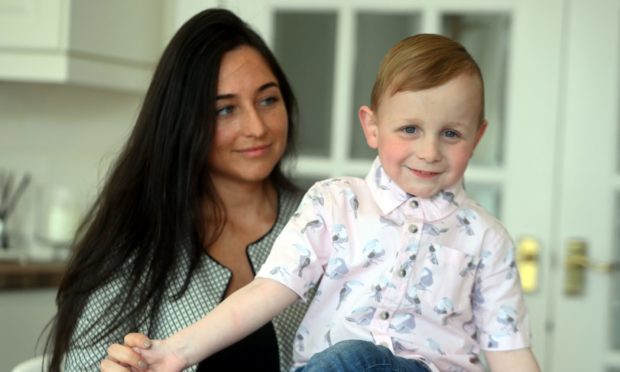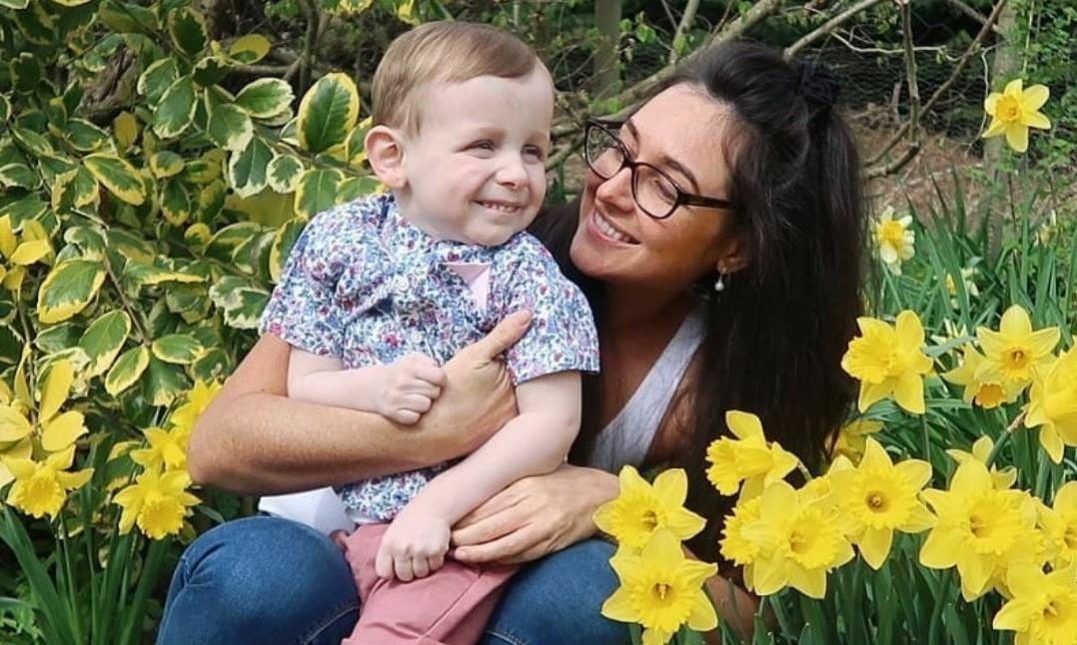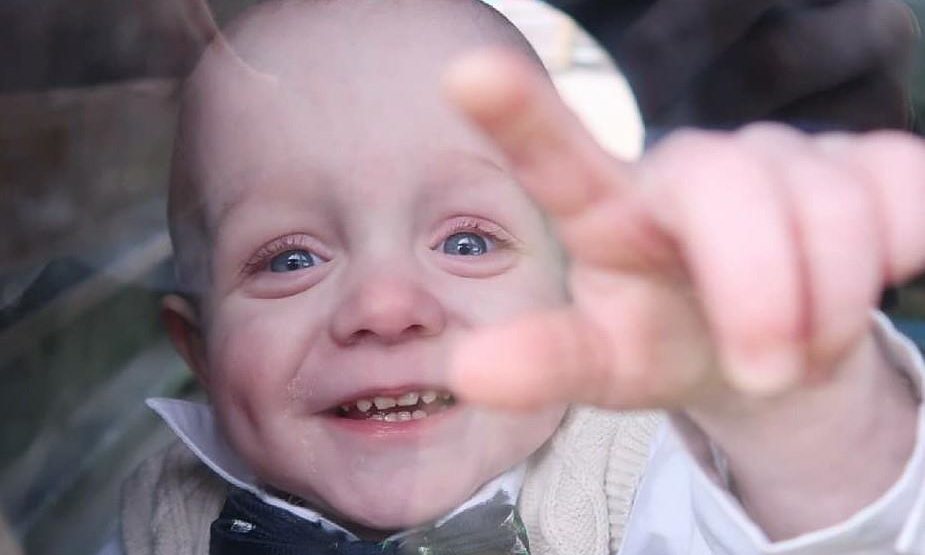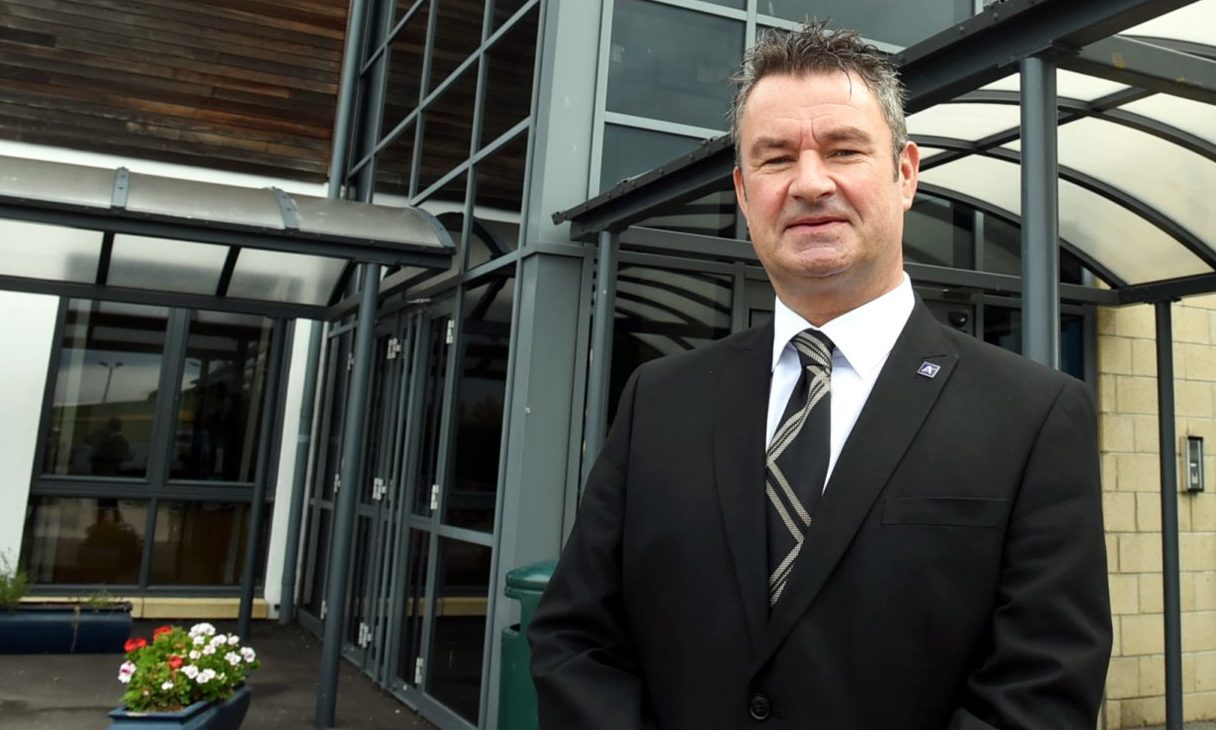An Aberdeenshire boy who was born three months premature has been denied the chance to start primary school later – despite the advice of specialists.
Henry Drybridge was born at 29 weeks, weighing just 1lb 9oz, and had to spend five months “battling to survive” in the neonatal unit.
Unable to breathe by himself, he was on a ventilator and then developed a chronic lung condition which left him susceptible to many illnesses.
Due to turn five next month, Henry has spent a lot of time sheltered at home in Forgue, missing out on a lot of the typical childhood experiences.
Doctors have given him a diagnosis of “globally delayed”, saying he’s taking a little longer when it comes to his speech, eating and motor skills.
But they have suggested an extra year in nursery, before entering primary one, would be all it takes for him to catch up to his peers.
Mum Lauren Knight, 26, has been lobbying Aberdeenshire Council to let Henry delay his school start to 2022, but claims bosses “won’t even entertain the idea”.
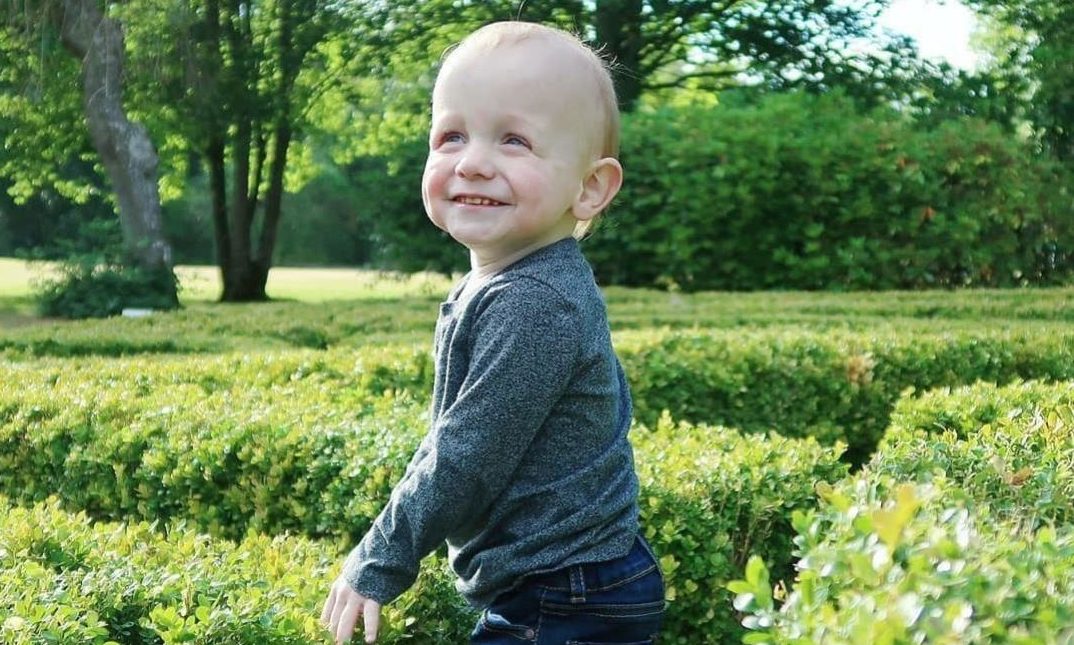
The council has pointed to legislation which states all children who turn five before the school year must enter primary one.
But other councils and the Scottish Government have stated there can be exceptions to the rule.
‘Penalised for being born early’
Miss Knight said: “Henry was born very early, and he’s missed out a lot in life due to him being so premature.
“If he was born on his due date in September, he would have a legal right to defer.
“But, as he was three months early, he’s missed the cut-off point and he’s being discriminated against for that – other regions in Scotland will accept older deferrals.”
Henry has been working with a team of experts including a child development consultant, dietician, child psychologist and gastroenterologist, who have said it would be in his “best interest” to have another year in nursery.
“Everywhere else you can apply for a deferral and have it considered,” Miss Knight added.
“But Aberdeenshire Council’s refusing to even give us the form.
“It’s really upsetting.
“If Henry’s given an extra year then he can be where he needs to, rather than being taken out of class to be taught in a support hub.
“He’s just delayed and needing some more time before school – it’s not because of a specialist condition, he’s being penalised for being born early.
“The council won’t even consider a deferral, going on his date of birth alone, without looking at his needs or circumstances.”
Ms Knight’s MSP Alexander Burnett raised the matter on her behalf with the education secretary, but received a generic response.
He said: “Families across Scotland will face the same obstacles as Lauren, because the rules about deferring entry are too open to interpretation.
“Time is fast running out for a decision that will benefit children like Henry.
“They deserve national clarity from the education secretary, whoever that will be, before it’s too late.”
Aberdeenshire Council defends school deferral policy
The Scottish Government’s Parent Club website, which offers advice on children’s healthcare and education, says there is no “one-size fits all” approach to deferral.
When considering youngsters requiring additional support, it states: “If starting school at this point isn’t in your child’s best interests because of their individual needs, then deferring entry to primary school can be considered.”
Citizens Advice Scotland has also offered guidance, saying: “The child may also be able to stay on at pre-school early learning and childcare after their fifth birthday if this would be helpful.”
Vincent Docherty, head of education for Aberdeenshire Council, defended its school deferral policy and said: “We are absolutely committed to supporting the wellbeing of every child, regardless of their age or stage.
“Legally, if a child turns five before the start of a new school year in Scotland, they must go into Primary 1 unless a parent chooses to educate their child at home.
“We have a consistent approach to this in Aberdeenshire and it is important to recognise that we will ensure the needs of all children and young people are met.
“It’s not about a child being ready for school but a school’s readiness to meet their individual needs.
“As part of the Getting It Right For Every Child approach, primary colleagues work closely with educational psychologists and other additional support needs professionals to help every child realise their potential, alongside their peers.”
